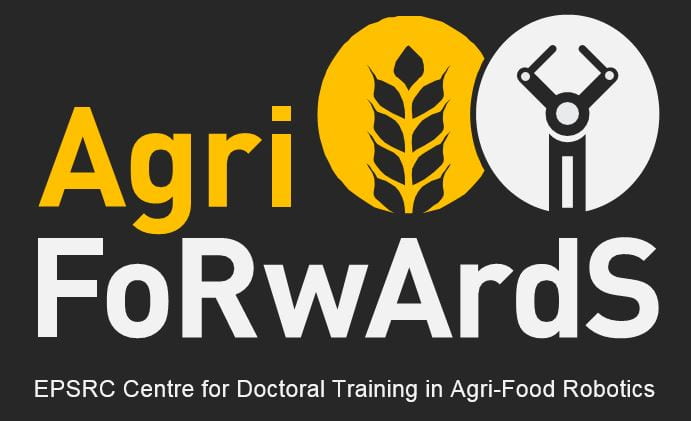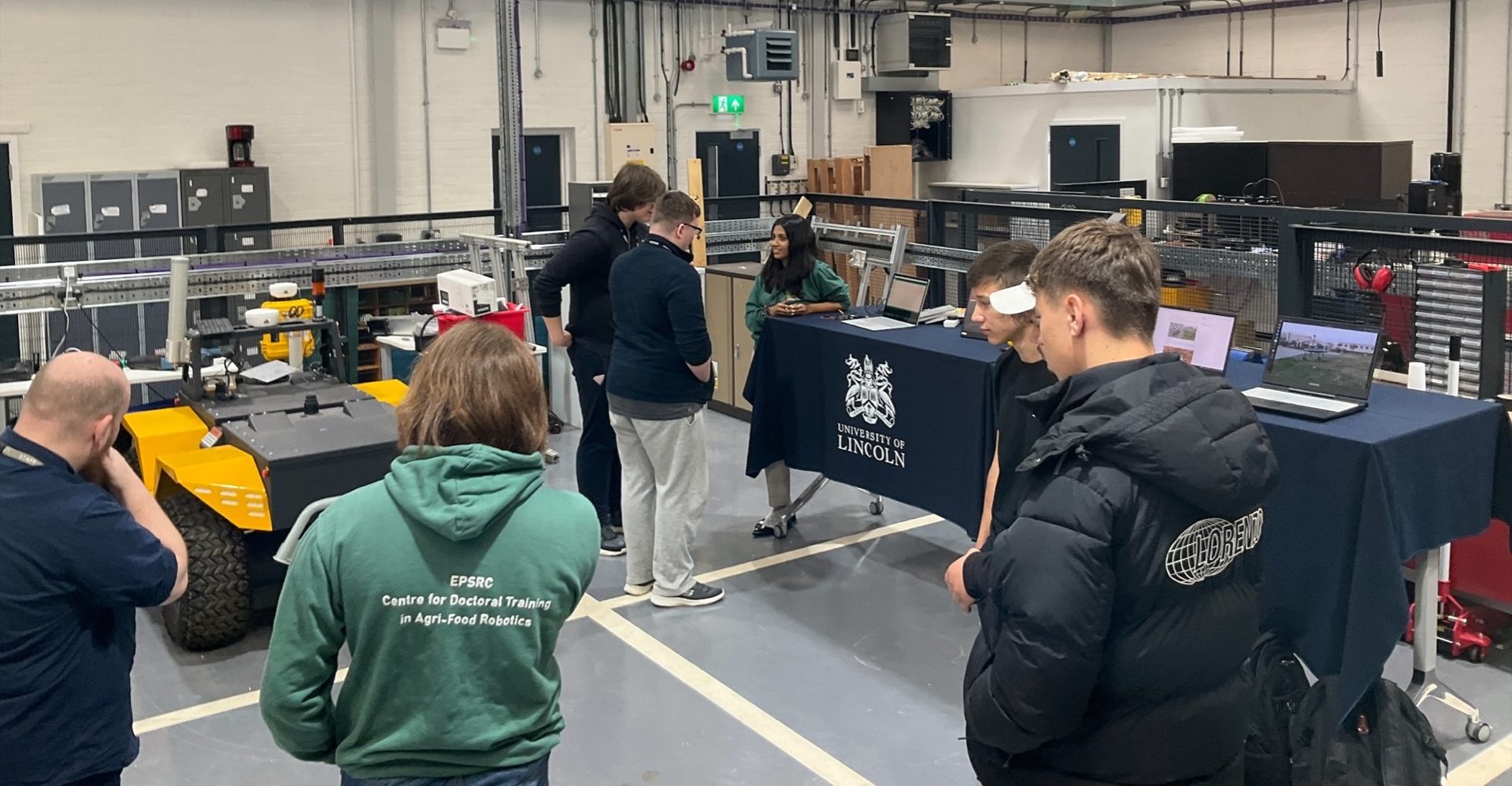On the 8th June AgriFoRwArdS CDT students took part in an outreach day hosted at the beautiful Riseholme Campus to introduce students from the Boston College: Institute of Technology, to robotics within agri-tech.
Boston College: Institute of Technology, is part of the the Lincolnshire Institute of Technology (IoT), a University of Lincoln initiative which has sites across Boston, Grantham, Grimsby, Holbeach, Lincoln, Scunthorpe and Riseholme. This network of centres is located at the heart of agri-tech, food manufacturing, engineering , energy and the broader digital sectors.
As part of a full day of events, CDT students Roopika Ravikanna, Samuel Carter, Xumin Gao and Garry Clawson, designed an interactive session to introduce the Boston students’ to the technology used within the agri-tech sector. Four activities were designed to show how the use of actuation, perception and movement could be combined to build interesting and useful agri-tech focused tools. The aim of this session was to inspire and promote how robotics can make a positive impact within agriculture. Over a dozen students were in attendance on the day, which made for several very interactive sessions!
Cohort 1 student, Roopika Ravikanna presented an interactive mechatronics activity where students could manipulate and control speeds of various solenoids and motors to control movement. A central aim of this was to remove the first stage fear of code and to show how even a few lines can already do something that can be very useful.
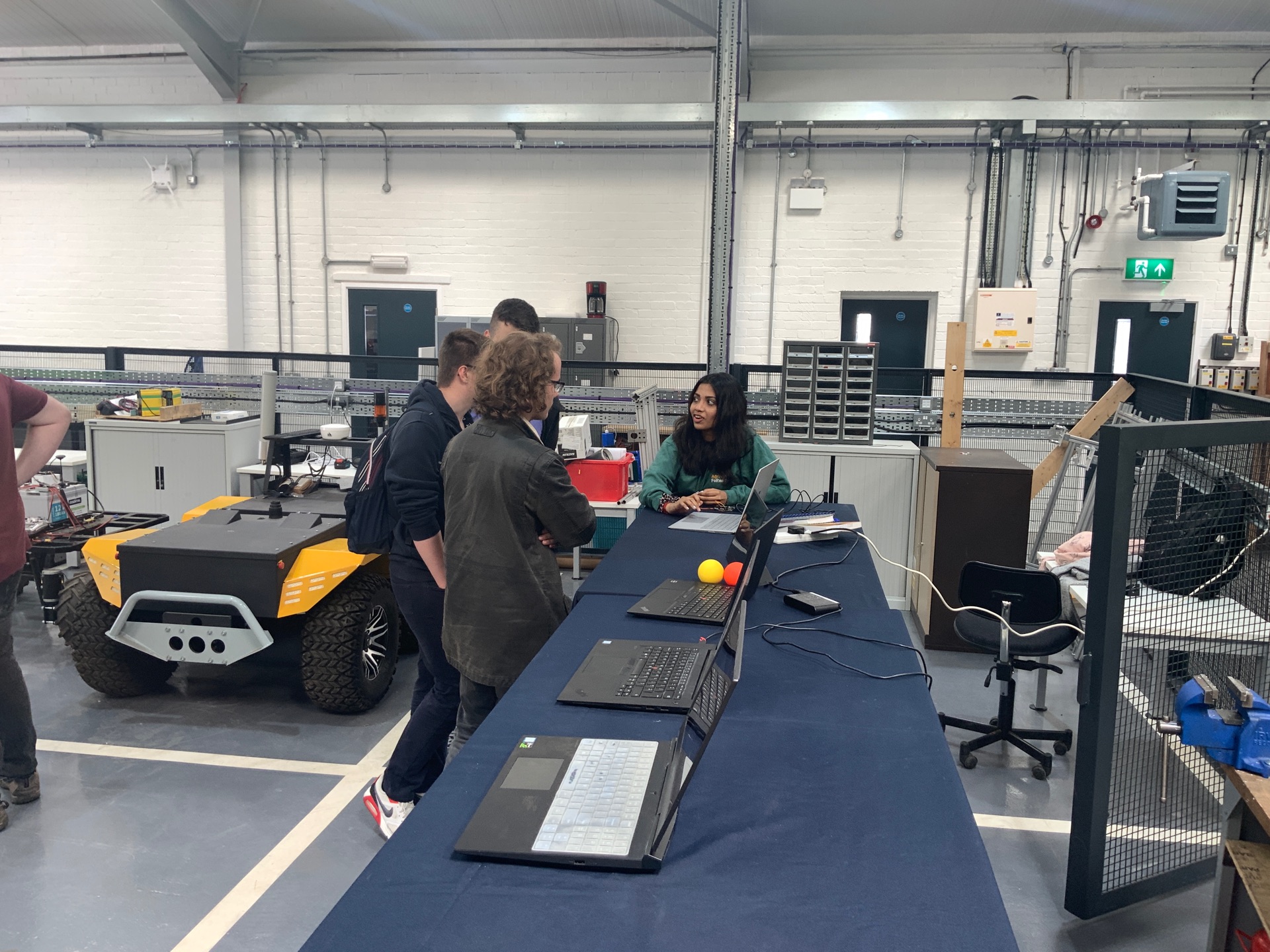
Cohort 3 student, Garry Clawson demonstrated how a simple webcam can be used to perceive colours, recognise shapes and track objects. This introduced the students to imaging and vision systems, but also provided thought on how a machine could begin to recognise infield items such as weeds.
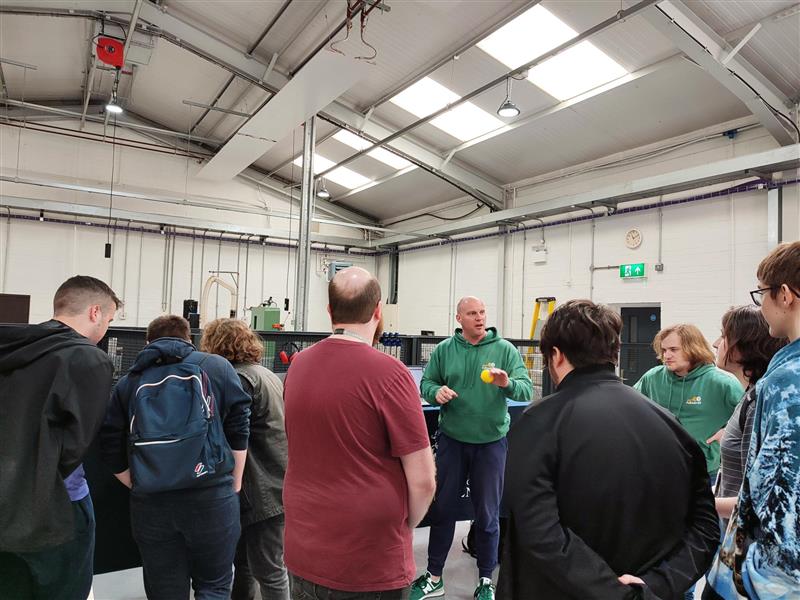
Cohort 3 student, Samuel Carter demonstrated an open source software and open source hardware mobile robot called OpenScout. This system was developed by two Cohort 3 CDT students (Samuel Carter and Niko Tsagkopoulos), and is available to anyone and includes easy and simple to use build instructions. The aim was to show that anyone can build a useful mobile robot and control it. The students each took turns inspecting the mobile robot and using its radio controls to zoom around the workshop – which was pretty cool!
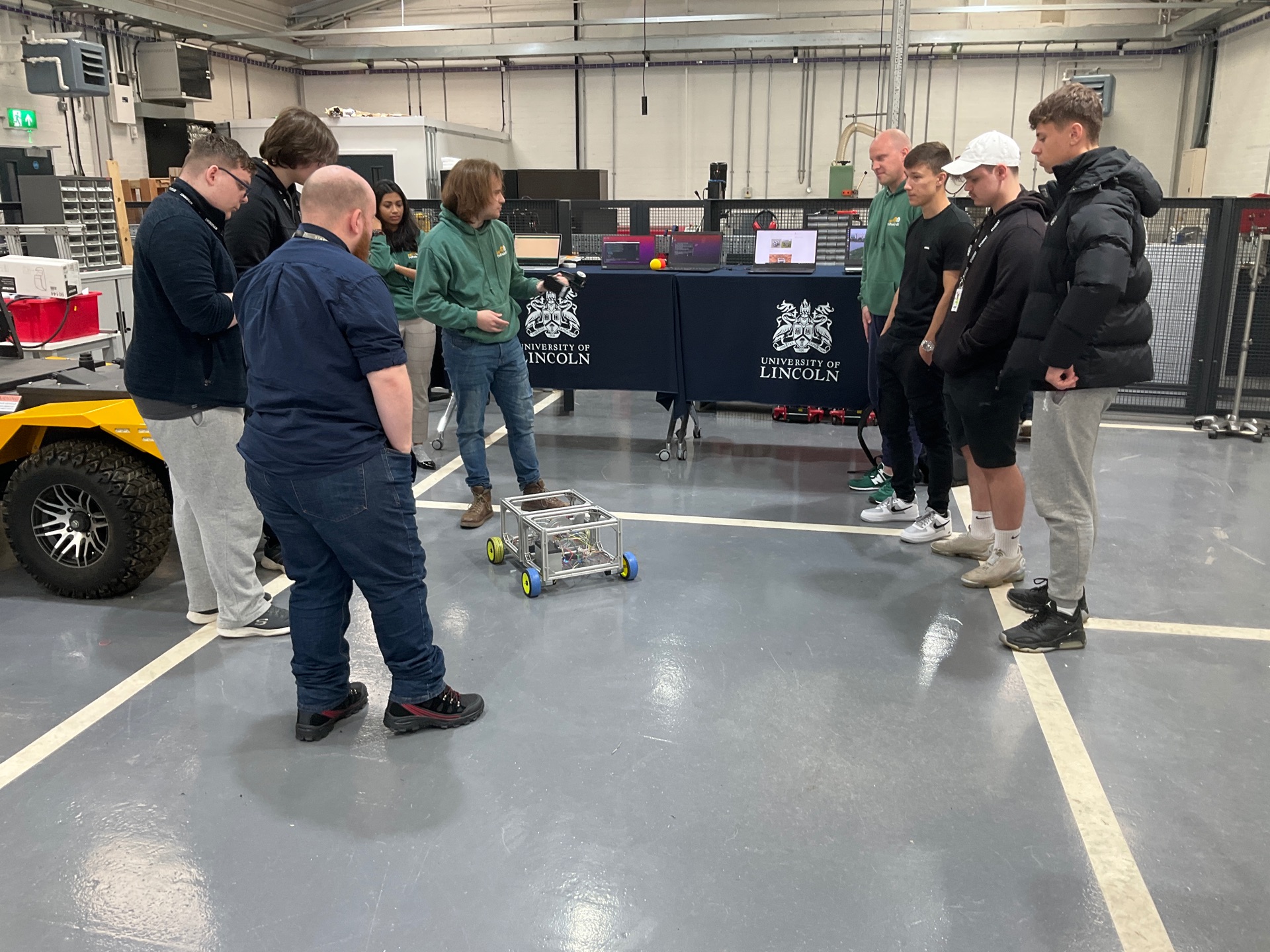
Cohort 3 student, Xumin Gao, then shared some previous work on building an autonomous weeding robot. Xumin spoke about the challenges of developing the system and presented a live video of it in operation. Although there is a large gap from a manually controlled system to an autonomous one, the message was that with small increments (using tool such as those demonstrated), cool new things can be thought of and developed pretty quickly; so even if you are new to robotics you can still make a positive impact!
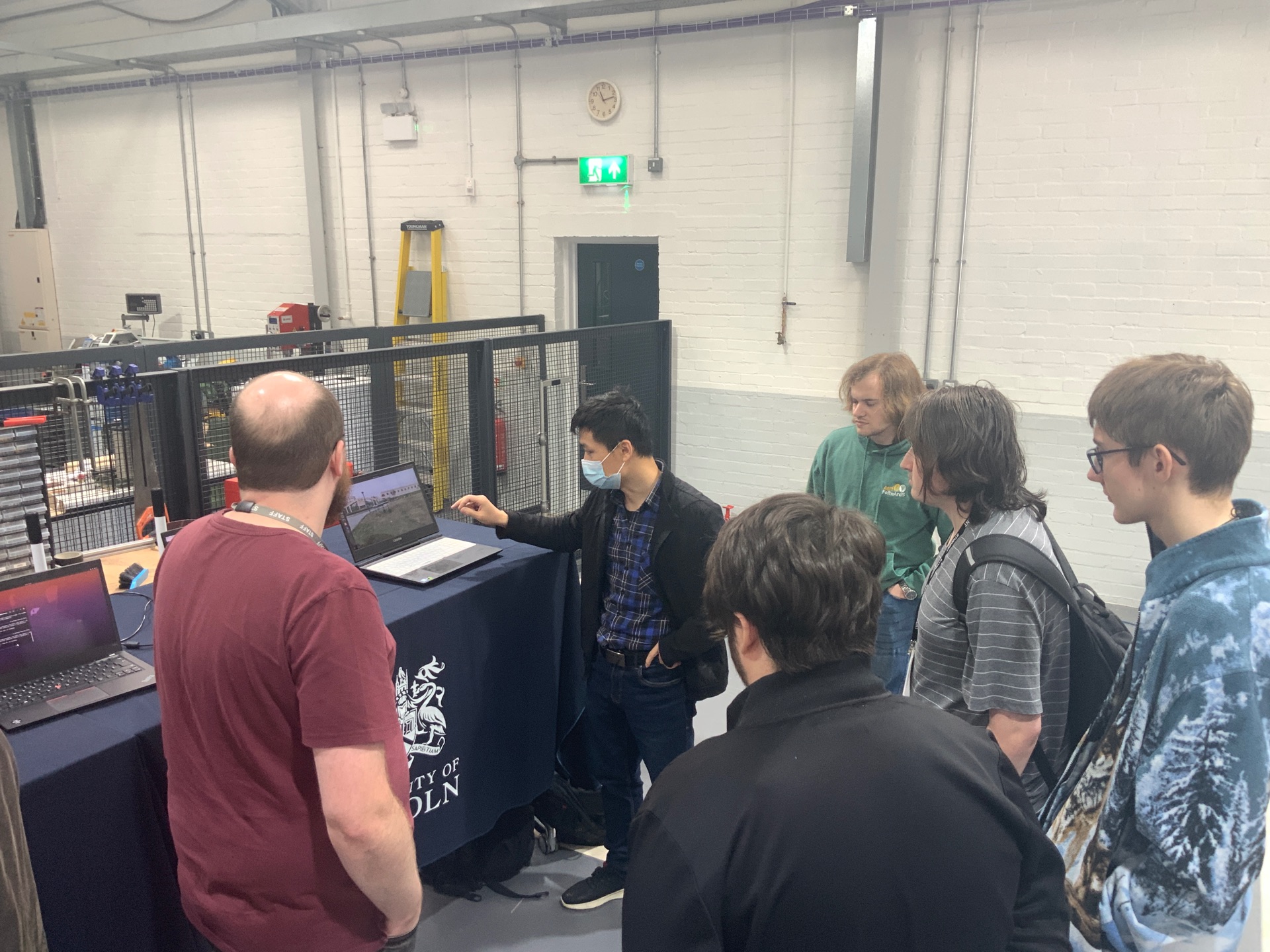
Each of the demonstrations used fully open source software and hardware which means the students can replicate the activities at home.
Feedback from students on the day was that the they enjoyed the interactive element and found the applications shown really interesting. Many of the students had not considered how robotics and computer science could be applied in agriculture or the work that is taking place in then area.
Volunteer demonstrator, CDT student, Roopika Ravikanna said that;
I found the day very rewarding as it always refreshes me to talk to young students and motivate them to pursue science and I hope the visit was useful to them as well.
A huge thank you to Heather Smith, Business Development Officer from the Lincoln Institute for Agri-food Technology for pulling the day togther and inviting the CDT students to take part. Thank you also to Roopika, Samual, Xumin and Garry for taking the time to share some of the concepts used within the agri-tech domain. Thanks also to Dr Rob Lloyd for the use of the engineering workshop. Finally, thank you to the Boston students who showed such enthusiasm and interest in the work taking place!
If you share a passion for agriculture and technology then go to our AgriFoRwArdS CDT website to see more about the research we do, how you can be involved and how to apply to be a student in the program.
